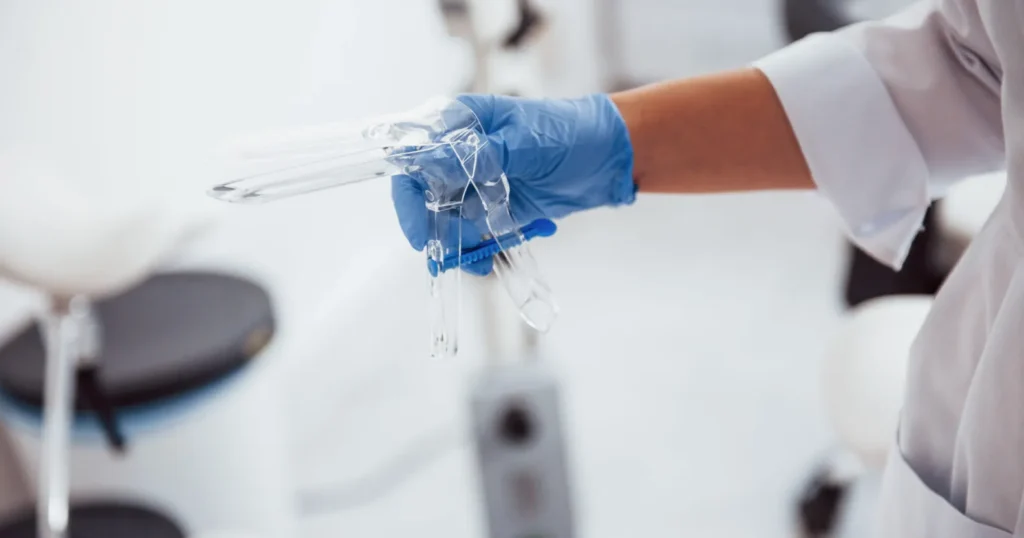
Thousands of transgender patients across England are missing out on crucial cancer screenings due to complications with their GP records, according to experts speaking at the World Cancer Congress in Geneva.
Despite national screening programs designed to detect and prevent cancers, such as breast, cervical, and bowel cancer, systemic issues in how GP records handle gender transitions mean that many trans individuals are not invited for routine tests. This oversight has raised concerns about the accessibility and equity of healthcare services for the transgender population in England, which is estimated to be between 200,000 and 500,000 people.
Impact of GP Records on Screening Invitations
In England, cancer screening invitations are typically issued based on a person’s registered gender. This becomes problematic when transgender men—those assigned female at birth but who now identify as male—change their gender on their GP records. Even if they have not undergone chest reconstruction surgery or a hysterectomy, they are not routinely invited for breast or cervical screenings. Similarly, trans women who are registered as male with their GP miss out on routine breast screening invitations despite being at risk of breast cancer, particularly if they have undergone long-term hormone therapy.
Dr. Alison May Berner, an oncologist specializing in cancer care for transgender individuals, highlighted the issue at the World Cancer Congress. “We all have busy lives and rely on these vital systems to remind us to access screening,” she said. “On top of that, these screenings can be dysphoric for trans people. Putting the burden on the individual to approach the GP compounds existing healthcare inequalities for trans patients.”
According to NHS England guidelines, when a patient changes their registered gender, they receive a new NHS number and must re-register as a new patient. While this process is intended to respect patient privacy, it inadvertently erases previous gender-specific health markers from their records. Since breast and cervical screening programs rely on these markers, many trans patients fall through the cracks, missing out on early detection opportunities.
Lack of Training and Awareness in GP Practices
Another barrier to adequate cancer screening for transgender patients is the lack of routine GP training on how to approach the subject of cancer screenings for trans individuals. Current NHS guidelines state that while transgender patients can request screenings from their GP, many doctors are ill-equipped to discuss or recommend these tests. Stewart O’Callaghan, chief executive of the charity OutPatients, emphasized that this lack of awareness could lead to life-threatening delays in cancer diagnosis and treatment. “Even if only 10% of trans patients change the gender on their GP record, that means tens of thousands are unable to easily access a routine mammogram or smear test that could detect cancer early and save lives,” O’Callaghan said.
To address these disparities, experts at the World Cancer Congress and cancer advocacy organizations like Macmillan Cancer Support are calling for significant changes in the NHS’s handling of transgender patient records and screening invitations. “Research shows that transgender people are more likely to be exposed to a number of risk factors for cancer, while their access to timely and effective care is affected by a range of complex issues,” said Gemma Peters, Macmillan’s chief executive. “The reality is that health inequities endanger lives.”
Challenges in Cancer Screening for Transgender Patients
England has four primary adult cancer screening programs: breast, cervical, bowel, and abdominal aortic aneurysm (AAA) screening. However, the current system doesn’t cater adequately to the needs of transgender patients. Here’s a breakdown of how these screenings work for trans individuals under the current system:
- Breast Screening: Anyone registered as female is invited for breast screening between 50 and 70. For trans men registered as male, even if they have not undergone chest surgery, this invitation is not automatically extended. Trans women and non-binary individuals assigned male at birth who are registered as female with their GP are invited for routine breast screening. However, trans women registered as males need to specifically request a mammogram from their GP, as they are not automatically included in the breast screening program despite the elevated risk due to hormone therapy.
- Cervical Screening: Individuals registered as females between the ages of 25 and 64 are routinely invited for cervical screening. However, trans men who are registered as male do not receive this invitation, even if they still have a cervix. Trans women, on the other hand, are not invited for cervical screening as they do not possess a cervix. Like with breast screening, the onus is on the trans patient to request this test from their GP, which could result in delayed detection of cervical abnormalities or cancer.
- Bowel Cancer Screening: Both trans men and trans women are invited for bowel cancer screening from the age of 60, regardless of their gender marker, as the test is not sex-specific. However, it is still vital that trans individuals’ GP records accurately reflect their needs to ensure they are routinely invited to participate in this life-saving test.
- Abdominal Aortic Aneurysm (AAA) Screening: Only men are routinely invited for AAA screening. Trans men are assigned female at birth, and trans women are generally not considered at high risk for AAA and, thus, are not automatically invited for screening unless they request it from their GP.
Solutions and the Way Forward

Healthcare advocates and experts suggest that one potential solution to address these disparities is for GP records to include both a person’s current gender and the sex assigned at birth. This would ensure that transgender patients continue to receive appropriate screening invitations without compromising their privacy. Stewart O’Callaghan proposed, “A potential solution would be having both gender and sex registered at birth on the patient record, but the latter only being accessible at a system level or by clinicians with permission.”
While the NHS acknowledges that trans patients can request screenings from their GPs, this system is far from ideal. Relying on patients to proactively seek out life-saving tests places an unfair burden on them, especially considering the dysphoria and stigma many trans individuals experience when navigating healthcare. “Any solution to this issue must be co-created with trans patients directly,” O’Callaghan added, underscoring the importance of patient involvement in creating equitable healthcare policies.
Ultimately, the exclusion of transgender individuals from routine cancer screenings reflects broader healthcare inequalities that extend beyond the UK. However, by raising awareness and advocating for policy changes within the NHS, healthcare professionals and patient advocacy groups are working to ensure that all patients, regardless of gender identity, have access to life-saving screenings and treatment.




